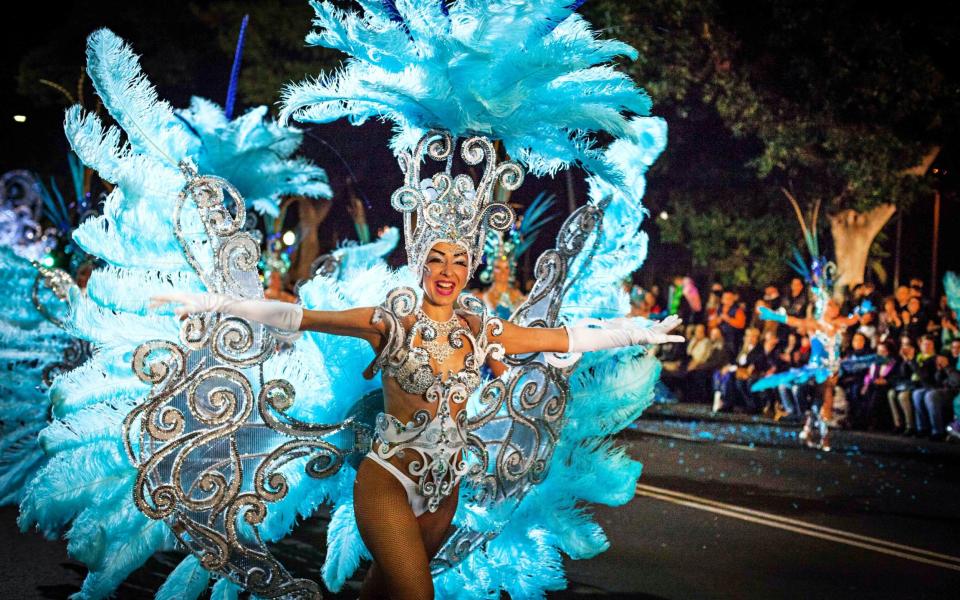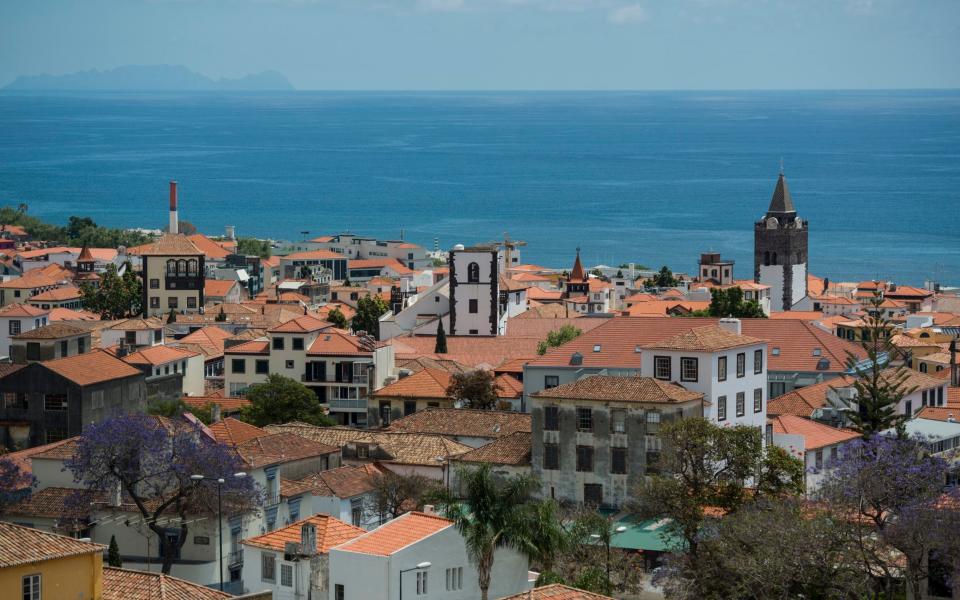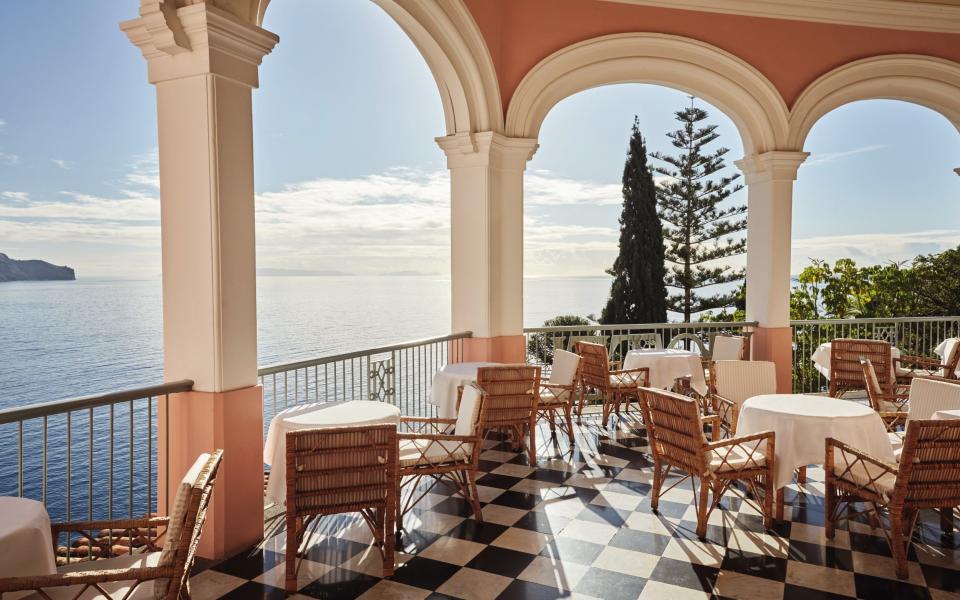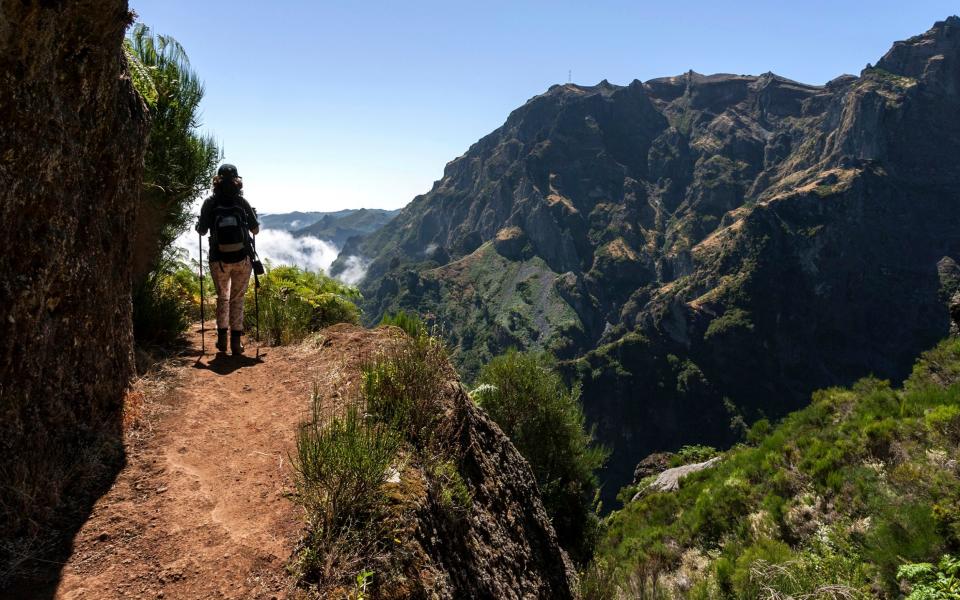Tenerife vs Madeira: The two jet lag-free islands vying for your attention this winter

Sometimes, travel is not about the far-flung and the remote horizon, but the familiar destination and the firm favourite. One of those times is surely this time of year, when the days are short, the temperatures are dropping, and all you want is a little winter sunshine.
Step forward two of the most obvious island options on the European side of the Atlantic.
Neither the Spanish hotspot Tenerife, in the Canary Islands – nor Portugal’s ocean star Madeira – are unknown quantities, but they can be relied upon for a holiday while the rest of the continent is starting to shiver. And even if the idea of beach weather can be a little overplayed in December and January (expect no more than 20°C around Christmas), there are numerous other reasons to pay a visit; history, culture and activity among them.
Which of these two islands is the best? And can you even compare them? Here’s everything you need to know
Tenerife
Spain’s Canary Islands are among the most popular of all travel options for British tourists – and Tenerife, the largest of the Canaries, has long stood out as a favourite of British holidaymakers, offering stretches of soft shoreline, luxury hotels and areas of historic importance, all of it just a 4.5-hour flight from the UK, and basking in palatable temperatures throughout the winter months.

The first point about Tenerife is that there is a lot of it: 785 square miles of Atlantic elevation, coming to a head on Mount Teide, which hits a height of 12,188ft (3,715m). Life plays out around this central giant, notably in the resorts of Playa de las Americas and the Costa Adeje in the south-west, and in the north-easterly capital, Santa Cruz, which tends to surprise first-time visitors with its vibrancy.
You might easily limit your wanderings to these signposted locations, but such is the size of the island that, if you have the time and inclination, wider exploration is its own reward. Not least on the Anaga peninsula – which brings the north of the island to a close in steep slopes, but few people.
Getting there
Tenerife’s popularity is reflected in the vast array of flights between the chief Canary and various UK runways. While there are no longer direct services from Britain to the isle’s original airport, Tenerife North, barely a daytime hour passes without a planeload of holidaymaking Britons disembarking at the more modern Tenerife South.

British Airways (0344 493 0787; ba.com) jets in from Heathrow and Gatwick; easyJet (0330 551 5151; easyjet.com) from Bristol, Edinburgh, Gatwick, Glasgow, Liverpool, Luton and Manchester – plus Birmingham from 19 March 2024. Tui Airways (020 3451 2716; tui.co.uk) spreads its wings the widest, with connections from 16 places – Aberdeen, Belfast, Birmingham, Bournemouth, Bristol, Cardiff, East Midlands, Edinburgh, Exeter, Gatwick, Glasgow, Luton, Manchester, Newcastle, Norwich and Stansted. Ryanair (01279 358438; ryanair.com) flies from Birmingham, Bournemouth, Bristol, Cardiff, East Midlands, Edinburgh, Glasgow, Leeds Bradford, Liverpool, Luton, Stansted, Manchester and Newcastle.
Jet2 (0333 300 0404; jet2.com) flies direct from Belfast International, Birmingham, Bristol, East Midlands, Edinburgh, Glasgow, Leeds Bradford, London Stansted, Manchester and Newcastle International, with flights from Liverpool John Lennon operating from March 2024.
City streets
It may be an obvious statement, and yet it is one that needs stating: Santa Cruz is a Spanish city, and is as alive and as exciting as its counterparts on the mainland.

It makes a statement in the Auditorio de Tenerife (auditoriodetenerife.com), an opera house constructed by the architect Santiago Calatrava, whose shape – a huge breaking wave, frozen in concrete – mimics the ocean that crashes alongside it. The metropolitan vibe continues in La Recova (la-recova.com), a central market brimming with gourmet treats – and in the TEA (Tenerife Espacio de las Artes; teatenerife.es), an arts complex that displays a collection of works by the Tenerife-born surrealist Oscar Dominguez.
The Hi Suites Hotel Emblematico (hisuites.es) offers double rooms from around £109, although it will be more expensive between January 12 and February 18 2024, when the annual Santa Cruz Carnival – a riot of parades, pageantry, colour and noise, not dissimilar to Rio’s pre-Lent extravaganza – takes over the town (carnavaldetenerife.com).

Historical hotspot
Tucked away five miles west of the capital, La Laguna is a slice of Canarian history so respected that it has Unesco status – hailed as a glorious example of Spanish city-building between the 16th and 18th centuries.
Certainly, there is a rich air of the past to this nest of narrow streets; the stark bell tower of the Iglesia de la Concepción dating to 1511, and the Museum of History and Anthropology (museosdetenerife.org) telling the island’s tale in detail. But the 21st century is here, too – in the restaurants along Calle Manuel de Ossuna; and in the Hotel Boutique San Diego (hotelboutiquesandiego.com), which makes chic use of a restored family manor house, with views over the Vega Lagunera. Double rooms from around £110.

Natural beauty
So mighty is Mount Teide that it ranks as the highest point in both Spain and the wider Atlantic – and, if measured from the ocean floor, is the third-tallest volcano on Earth (eclipsed only by Hawaiian double-act Mauna Kea and Mauna Loa). Plenty to admire, in other words, most of it safeguarded as Teide National Park (volcanoteide.com). Those of suitable fitness can take on Route 040 – a 17-mile beast of a trail that begins at Playa del Socorro on the north coast, and can be hiked (there and back) in a day (see webtenerife.co.uk).
The less energetic may prefer the resident cable car – which also reaches the rooftop (£35 return).

Don’t miss
The idea that volcanic islands make for drab and dreary beaches is partially dispelled by Playa de las Teresitas, a lovely arc of gold in the north-east, a further five miles up the coast from Santa Cruz. Admittedly, the honeyed sand here is a transplant, shipped in from the Sahara – but when you sink your toes in, you can forgive the artifice. For those craving authenticity, Playa de San Marcos, on the north coast, sticks to the Canarian black-sand template, and has a pretty simplicity (plus restaurants for lunch).
Hidden wonder
Those who want to abandon the beaten path entirely can do so in Anaga Rural Park, the protected zone that ring-fences a broad slab of the highland region at the island’s northern tip. Active holiday specialist G Adventures (020 7313 6936; gadventures.com) sells a five-night Tenerife, Anaga and Beyond escorted hiking break, which spends one of its six days in this realm of ridges and ravines. Eight departures are currently planned for 2024 – from £730pp (not including flights).
See our guide to the best all-inclusive hotels in Tenerife.
Madeira
Sitting 300 miles north of the Canaries, Portugal’s great volcanic legacy is just as well-loved as its Spanish neighbour. Not, as is sometimes thought, a single outcrop, Madeira is a small archipelago, where the beaches of Porto Santo and the windswept desolation of the Ilhas Desertas (Deserted Islands) add their weight to the craggy majesty of the main island. They are known quantities for a prescription of fair weather, and easily accessed from Britain (flights take about four hours).

It is perhaps a tribute to Madeira’s all-round ruggedness that – unlike almost every other island “discovered” by European explorers in the colonial centuries – it was entirely uninhabited when Portuguese sailors espied it in 1419. Maybe it was too far removed from established shipping lanes, maybe its volcanic bluffs looked too little like a potential home, but it stood there untouched in the deep Atlantic, a swarthy sentinel of peaks and troughs. In some ways, it has barely changed since.
True, it now has a population of more than 250,000, and a south-coast capital, Funchal, which is among Portugal’s prettiest cities. But it remains, in spirit, the ocean-swaddled outpost that had evaded detection, its high-rise interior making for challenging adventures almost as dramatically as it did 600 years ago.

Getting there
While not as widely connected to Britain as Tenerife, Madeira welcomes a raft of flights from UK airports. Jet2 does much of the work, with services from Belfast International, Birmingham, Bristol, East Midlands, Edinburgh, Glasgow, Leeds Bradford, London Stansted, Manchester and Newcastle International, with flights from Liverpool John Lennon operating from April 2024. Tui Airways flies in from Birmingham and Manchester. British Airways offers a direct route from Heathrow, easyJet from Bristol, Gatwick and Manchester. Ryanair sets down from Manchester and Stansted.

City streets
Funchal is an ideally sized capital; small enough to explore on foot, big enough to entertain the visitor for at least a weekend. Intriguing sights abound. The Mercado dos Lavradores, if not quite the heart of the matter, is certainly one of the vital organs: a classic colonnaded market full of flowers and foodstuffs.
The Se Cathedral is a sturdy slab of the Portuguese 16th century, completed in 1517. Like Tenerife, Madeira has a cable car (madeiracablecar.com) – Funchal hosts the base station of this 15-minute ride up Monte hill (and is the star of the resultant view). Local celebrities also play a part. And if footballer Cristiano Ronaldo is not your bag – although the Museu CR7 offers a fine overview of his trophy-laden career (museucr7.com) – then the Centre Nini Andrade Silva (ninidesigncentre.com), dedicated to the island-born interior designer, just might be.

The oceanfront calls when it comes to accommodation. The Next hotel (hotelnext.pt) promises four-star fun and double rooms from around £98 – as well as a cluster of swimming pools, a rooftop bar and access to the sea – a short stroll from the city centre.
Historical hotspots
For all the cathedral’s gothic solidity, it is the 19th century that sings most sweetly in Funchal. It does so out on the north-eastern fringe of the city in the Quinta da Boa Vista (see visitmadeira.com) – a historic estate that began blooming in the 1860s, and is best-known for its bright bursts of orchids.

A similar date (1891) is woven into the fabric of the city’s most feted property, Reid’s Palace, which gives the waterfront an added hint of antique sophistication. It is now part of the Belmond stable of luxury hotels (doubles from £360; belmond.com), and remains celebrated for an afternoon tea that has fed many a former guest, from Winston Churchill to Captain Scott.
Natural beauty
While Pico Ruivo, the island’s pinnacle, cannot match Mount Teide for altitude – at 6,106ft, it is about half the height of its Canarian cousin – it still makes for a fabulous escape into the clouds. Madeira’s rooftop can be reached by anybody of basic fitness, via the PR1.2 and PR1 footpaths.

These are winding trails that crisscross the centre of the island, carrying the hiker to a platform from which, on clear days, all four coasts are visible. Those of an active disposition may also be drawn to Pico do Areeiro, the third-highest mountain at 5,965ft, whose relative proximity to the kingpin means it can easily be included in the same excursion. Lido Tours serves up just such a two-part jaunt (six miles, in five hours), from £34pp (lido-tours.com).
Don’t miss
For all its history and geography, Madeira also offers a fine line in modern culture. One of the best examples sits a little out of the way at Calheta, in the south-west corner of the island, 23 miles from Funchal.

The Mudas Contemporary Art Museum (see museus.madeira.gov.pt) is as dramatic on the outside as within, its main building a quasi-fortress of grey stone at the water’s edge. Its collection covers Portuguese painters and sculptors of the later 20th century – Antonio Areal, Helena Almeida, Manuel Baptista – and complements Mamma, the Madeira Modern Art Museum, which follows a similarly sharp path back in the capital (facebook.com/MammaArtMuseum).
Hidden wonder
While the Madeira interior is laced with hiking trails, the true daredevil may be more drawn to an activity that involves rapid “downs” rather than steady “ups”.
Madeira Adventure Kingdom (madeira-adventure-kingdom.com) runs a range of canyoneering escapades in some of the gullies and small rivers that pour from the highest peaks.
In the case of the Ribeiro Frio, on the east side of Pico Ruivo, the pouring process means eight waterfalls, waiting to be abseiled, from £57pp.
See our guide to the best hotels in Madeira.


